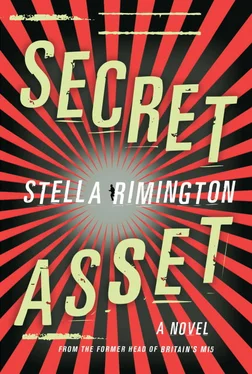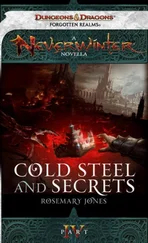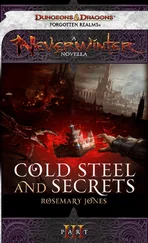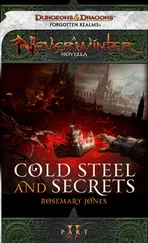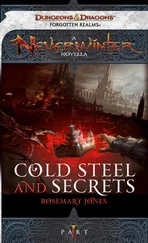Rashid shook it nervously. “May Allah be with you,” he offered tentatively. He shook hands with Khaled too and uttered the same blessing.
Bashir gravely repeated his instructions for a final time. “Take your time walking there. Whatever you do, don’t rush or you will draw attention to yourself. I’ll expect your call—it should be in twenty minutes. But don’t forget: ring only as the procession comes into view.” He looked at Rashid solemnly. “May Allah be with you,” he intoned, and motioned for Rashid to get out of the van.
There was no time to waste. Bashir turned left onto the wide thoroughfare of St. Giles, noting the policeman on the far side of the street. He drove at medium speed towards North Oxford, only to loop back towards the centre of town. About half a mile north of the Sheldonian, he pulled into a quiet side street next to the red brick walls of Keble College, a Gothic triumph of Victorian ambition. There he parked the van, and then he and Khaled sat in silence, waiting for Rashid to call.
Am I nervous? Bashir asked himself. Not really. The Englishman had warned him that he might be, even offered him tablets to help—which he had refused. And in fact he felt a slow wave of calm settle on himself as at last the moment neared.
He turned and reached carefully into the back of the van until his hand found the length of rope. He pulled it gently until the free end was in the front seat with him, where he laid it carefully on Khaled’s side of the gearbox. It was almost taut; one sharp tug by Khaled in ten minutes, a half-second delay, and he and Bashir would be in their future.
Liz stared intently at the monitors surveying Broad Street. She barely noticed when Dave stuck a plastic cup of white coffee in front of her. “Six sugars, right?” he teased, noting her preoccupation, and she gave a fleeting smile before resuming her watch. The Chancellor had left the Sheldonian a few minutes before, now “installed,” and had walked to Lincoln College through the Bodleian courtyard, under the watchful eye of a sharpshooter on the library’s roof and with the full attention of several plain-clothes policemen on the ground.
Suddenly a young policewoman rushed into the room, her cheeks flushed. Seeing the group clustered in front of the monitors, she stopped short, made suddenly self-conscious by their curious stares. “Sir,” she said, out of breath, seeming to address both Matheson and the Chief Constable, “we’ve just had a warning call. It said there’s about to be a major incident on Broad Street.”
“What were the exact words?” demanded Wetherby.
“I can play it back for you,” the policewoman said. She went to a console at the back of the room, hit a switch, and after a hiss and crackle the taped conversation filled the room.
“Special Branch,” a female voice declared.
“Listen carefully,” said an English male voice. “I will not repeat this message. In fifteen minutes, a bomb will go off in the middle of the procession on Broad Street. Look out for a young Pakistani man. You need to act fast.” The line went dead.
Liz and Wetherby looked at each other tensely.
Ferris the Chief Constable interjected. “It’s not a hoax, is it?”
“No,” said Wetherby. “It is not a hoax. We recognise the voice.”
“Why did Tom call?” asked Dave, bewildered.
“And what about the other terrorists?” Liz said to Wetherby, worry spreading across her face.
Wetherby was shaking his head. He looked mystified. “If Tom knows what he’s doing, I certainly don’t.”
PC Winston’s radio had crackled barely two or three minutes before with its urgent message, and he was positioned in front of the double gates of Trinity quad, helping to redirect the flow of foot traffic. The normal robust number of pedestrians was augmented today by visitors wanting to witness the pageantry of the Encaenia procession, and they were slow to clear, despite the urgency of the policemen ordering them away from the direction of the Sheldonian. There was a television crew from the local ITN station who were being particularly bolshie, since if the comparative boredom of yet another Encaenia was being upstaged by an “incident,” they were determined to be there to film it.
Now PC Winston found himself surrounded by Japanese tourists, who paid little attention to his instructions and were instead taking pictures of each other in front of Trinity. They wanted PC Winston to feature in their snaps as well, which was making his task even more difficult. He was doing his best to redirect one young girl in particular, who had no English at all but was vigorously tapping him on the elbow, when he saw him.
He was tucked in the back of a small group of Italian teenagers who were also ignoring instructions to move down the street. And the little man might have gone unnoticed if he had not been dressed so unlike a teenaged student, wearing a proper shirt instead of a T-shirt, and holding—somehow awkwardly—a mobile phone. And this sense that he was different was confirmed for PC Winston when the man peeled off from the group, moving back against the College gates, not fifteen feet away, and looked out towards the Turl. He’s waiting for something, thought Winston, watching him closely as he fingered his phone.
PC Winston could move fast when he had to. The phone had just got to the little man’s ear, when Winston’s long arm took hold of his hand. “Excuse me, sir,” he said urgently, “could I have a look at your phone please?”
Looking up at him, the Asian seemed absolutely petrified. “Of course,” he said nervously, smiling weakly as he let go of the phone. Then he suddenly turned and took off down Broad Street towards the commercial centre of the town.
Clutching the phone, PC Winston ran after him, shouting, “Stop him!”
As Rashid ran towards the corner of the Magdalen Street churchyard, he was suddenly thrown against the outer wall of Balliol, then pinned there by the firm hands of another uniformed policeman. Got him! thought Winston, his sense of relief slightly soured when he saw it was PC Jacobs, the young smart-arse, who had made the arrest.
Where was he? Why hadn’t Rashid rung? Bashir disobeyed the Englishman’s instructions and dialled Rashid’s mobile, only to find it was switched off. Damn! He checked his watch—the procession would be reaching Broad Street at any moment. What had the Englishman said? “If there’s any hiccup in communications, just go. Whatever happens, you must not be late. Late means too late.”
He would wait another thirty seconds, he decided, staring at his digital watch. Next to him Khaled suddenly stirred, and pointed through the windscreen. Looking out towards the end of the street, where the lush green lawns of University Parks were visible in the background, Bashir saw them.
One was in uniform, two were in plain clothes, walking briskly in and out of the street, checking each parked car, then moving on quickly. They were coming this way.
Please ring, please ring, Rashid, Bashir exclaimed, in what was almost a prayer. He saw one of the plain-clothes men point towards his end of the street, and then Bashir realised that he was pointing at him. The uniformed policeman looked up and broke into a sprint, grabbing his helmet with one hand while he shouted into a radio held by the other. The two plain-clothes men were behind him, and all three ran at full speed down the middle of the road.
He couldn’t wait any longer. He turned the ignition and the van coughed into life. Revving the engine, he pulled out sharply, intending to accelerate towards Parks Road, where he would turn onto the half-mile street that would lead them to their target. Seeing him start up the van, the man in uniform veered off onto the pavement, and one of the plain-clothes policemen drew a gun from inside his coat, and crouched behind the rear of a parked car.
Читать дальше
